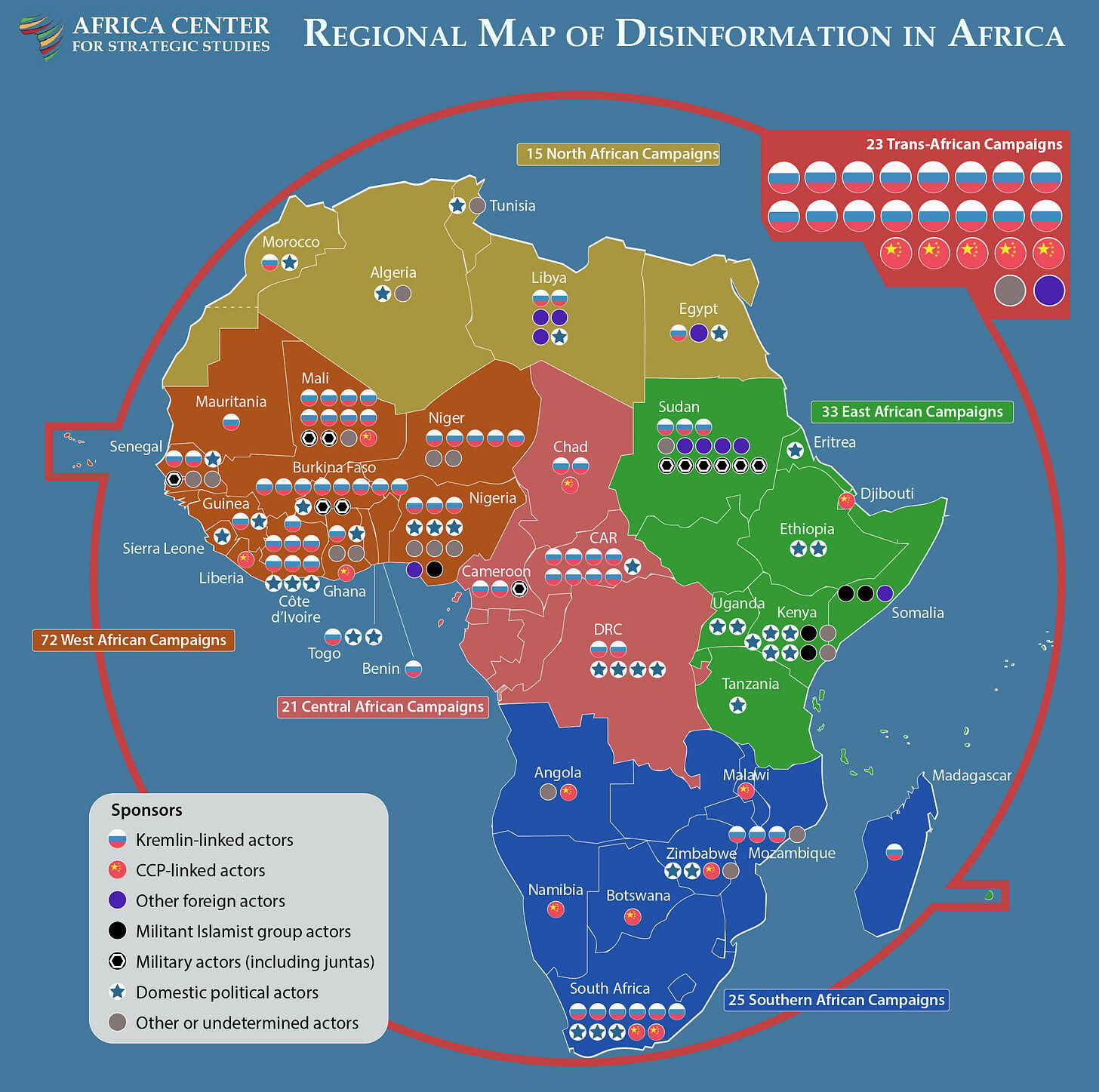- CybAfrique Newsletter
- Posts
- Election Disinformation in Ghana
Election Disinformation in Ghana
also ft; Africa’s Wave of AI Policy
CybAfriqué is a space for news and analysis on cyber, data, and information security on the African continent.
Bank fraud, legal tussle, and many more! In our highlight, we underscored the trend and spread of election disinformation in Ghana as a broad problem in the world and the wave of AI regulations and frameworks since Q2 2024.
— Adebola.
HIGHLIGHTS
Election Disinformation in Ghana
Ahead of the Ghana general elections scheduled to be held in December 2024, there have been an alarming number of false news geared to target and decrease the credibility of candidates, among other reasons.
Addressing this, the Chairperson of the National Commission for Civic Education (NCCE), Kathleen Addy noted that the country has for decades witnessed relative peace owing to intentional measures towards attaining misinformation. However, this does not effectively stop several propaganda views from having high tendencies to sway voters’ decisions and causing other remote tensions. With the aid of the media, particularly social media and deceptive tools such as generative AI, maligned information persists as a serious cybersecurity concern.
In the recent Ghana Report Summit which focused on combating misinformation, the incumbent president, Nana Akufo Addo, stated in his keynote address that he had been a consistent target of misinformation. “With a few months to the December 2024 elections, they are at it again.”
This is not the first time election misinformation has spurred attention in Ghana. Virtually, most countries of the world deal with upholding information integrity during elections. The Africa Center for Strategic Studies reports that elections are “prime opportunities” for disinformation and there are over 100 disinformation campaigns across different regions on the continent.

Like other countries, Ghana grapples with potential cyber threats stemming from misinformation, and this might be hard to completely forgone with only a few months to the country’s general election.
Africa’s Wave of AI Policy
Nigeria and South Africa have recently introduced their Artificial Intelligence strategy joining 10 other African countries to formulate a policy guideline for best use of AI. The national policy framework developed by the South African Department of Communications and Digital Technologies (DCDT) is still undergoing certain checks and approval from major stakeholders in the information and communication technology (ICT) industry.
Meanwhile, in Nigeria, the Minister of Communications, Innovation and Digital Economy, Honourable Bosun Tijani, stated that the National Artificial Intelligence Strategy (NAIS) draft has been worked on since last April by Nigerian AI experts. The NAIS “will serve as a roadmap towards achieving our aspiration to participate actively in leveraging the ethical use of AI for national development.”
This strategy follows several applicable cybersecurity laws such as the Cybercrimes (Prohibition and Prevention, etc.) Act, 2015, Nigeria Data Protection Act (NDPA), 2023, Nigeria Data Protection Regulation (NDPR), 2019, etc.
In June 2024, the European Union (UN) enacted the first-ever AI regulation after the European Commission developed the first EU regulatory framework for AI in 2021. The African Union followed in July 2024 to constitute its ‘Continental Artificial Intelligence Strategy’ during the 45th Ordinary Session in Accra, Ghana. This strategy was later published on August 9.
This wave of AI policies is partly motivated by several risks and threats stemming from its use cases across several countries for cyber fraud. A report by AI4D estimates that AI can contribute $2.9 trillion to Africa’s economy by 2030. However, cybercrime is estimated to cost the world USD 9.5 Trillion in 2024. Without these existing strategies and regulations, the African continent may continually suffer from AI threats and cyber crimes and lose oversight of the other positive potentials the AI technology offers.
FEATURES
South Africa’s health sector underwent a major cyber attack in June when the National Health Laboratory Services (NHLS) was hacked. However, this should be unsurprising since the sector withholds customer data attractive for cyber attacks. Share
HEADLINES
GTBank hack could be a combination of problems - Techpoint Africa
Exclusive: First Bank sacks over 100 employees after ₦40bn fraud, freezes their accounts - TechCabal
Fitch cuts Union Bank’s credit rating over capital breaches - TechCabal
High Court denies motion to reverse billions of naira Flutterwave lost in PoS fraud - Techpoint Africa
Court reverses TAJ Bank’s customers’ N139 Million ‘unlawfully’ credited due to system glitch - Nairametrics
Frozen #EndBadGovernance crypto wallets are on KuCoin and MEXC and still performing transactions - Techpoint Africa
DRC: New Think Tank Initiative Launches to Bolster Digital Law - We Are Tech Africa
Sensitive data allegedly stolen: BOA denies any intrusion - Africa CyberSecurity MagShare
ACROSS THE WORLD
OPPORTUNITIES
CYSEC AFRICA 2024 | 3rd October 2024
Africa Cyber Security Expo | Nov 29, 2024
Reply